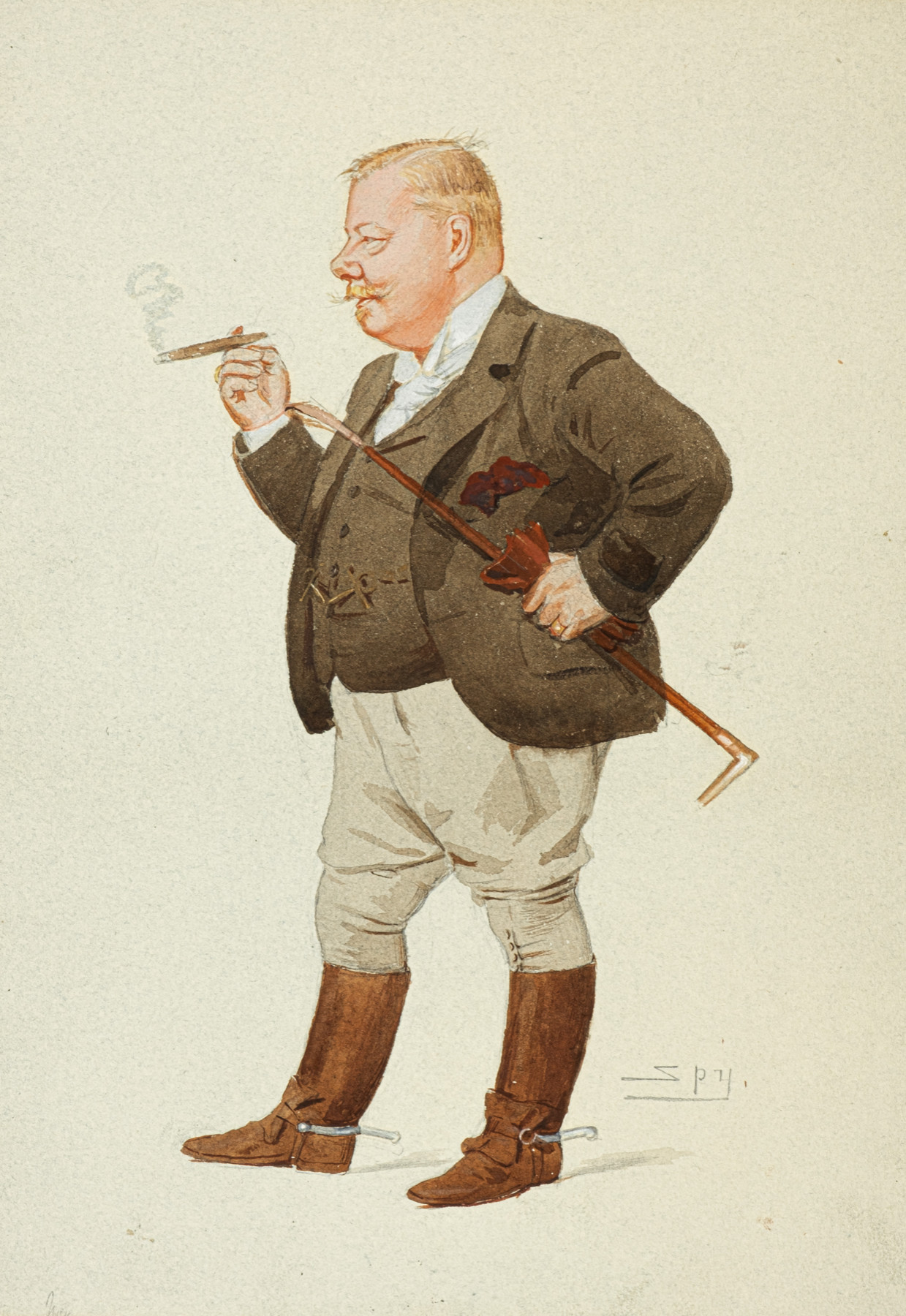
(click image to enlarge)
Linley Sambourne (1844-1910) was an artist, cartoonist and illustrator, who would succeed Sir John Tenniel as the political cartoonist of Punch.
“Historically he dates from 1815; but his cadly years having been passed in the obscurity of the nursery, the City of London School, Chester College, and an engineer's workshop, his career really and for all practical purposes began some four-and-twenty years ago. He was then devoting such time as he could spare from the more serious business of caricaturing other people to the art of engineering, under the roofs of John Penn and Son at Greenwich; when a good angel took one of his untaught sketches into the hands of Mark Lemon, who thereupon put a presentment of John Bright tilting at a quintain into Punch. Since then his countless original, humorous, and precisely detailed drawings for that paper have made his pencil well known to all the world. He has illustrated ‘The Water Babies,’ ‘Hans Andersen's Fairy Tales,’ and a shelf-full of other books; and he has designed a diploma for an International Exhibition, and has exhibited it at the Royal Academy. But he has not designed any of our beautiful coins.
Having been apprenticed to a maker of steam engines, he is naturally full of pictorial cranks and eccentric imaginings; yet he never wastes a line. He makes much and artistically unorthodox use of photographs, because his journalistic duties will not allow him time to draw from life; yet he is quite an artist. He has a keen eye for small detail, and for preciseness his work is unrivalled; but it is not therefore robbed of general effect. He never took lessons in drawing, yet he is a very accurate draughtsman, who always clothes his figures naturally. He can fill a page so full of humorous eccentricity that a moderately dull person may look at it for half an hour before he may appreciate all that is there.
He is a cheerful fellow, with nothing of the fop about him. He is unartistic to look at; he cares nothing for fashion; he is fond of riding; and he is more like a countryman than an artist. But he is not altogether what he seems, and there is often a twinkle in his eye.”